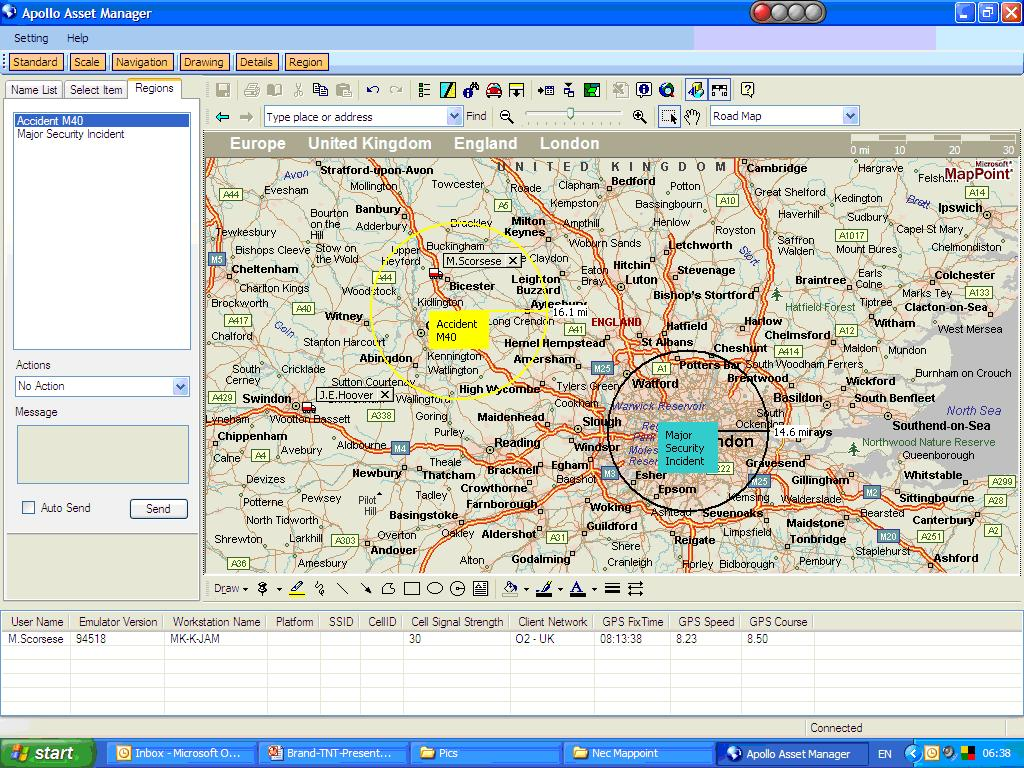Asset Management
Deploying mobile solutions is only half the challenge; managing systems in the field post deployment has to be a design consideration. Brand has both a location based services tool and a Customer Care interface / SQL database for logging events of the system.
Location Based Services
Brand’s location based technology offers businesses customised, localised and real time access to mobile employees / devices out in the field. These location based services can provide field force management, navigational tools, dynamic routing, emergency notification and also cover lone worker regulations.
Brand’s Apollo solution gives you the ability to locate and track your mobile employees and devices in real time using GPS technology. The ‘Apollo’ software client has three in-built location based mechanisms, GPS, CELL-id and Wi-Fi making lone worker operation a viable option and asset management and analysis simple.

The mobile employee / device simply establishes a connection with a GPS receiver via a serial or Bluetooth connection. The Apollo client then remotely communicates the location of the employee / device in real time to the Apollo ‘Anywhere’ Server based at the head office and all the location details will be shown and logged.
This system can also be used for sending messages to mobile users based on events or locations. It can also be used for finding the nearest engineer to a problem for optimising the job despatch function and as such the efficiency of operational services.
The platform also integrates with the Brand “SOS” button which is used in many applications for managing “Lone Worker” operations where a user in distress can hit a button on their device and an icon on the map will turn red immediately alerting control as to his location.
Brand Telematics and Vehicle Based Mobility
Brand has developed a range of vehicle based solutions for mission critical environments. Used mainly in Police applications, this product is also ideal for remote telematics, satellite gateways, forward command vehicles or offices for major incident management.
Other services include an OBD2 interface to allow automatic monitoring and management of the field workers vehicles when the device is in proximity of the vehicle. This interface can provide alerts to the fleet manager when vehicles approach service intervals, early warning when faults develop or duty of care through instantly alerting the operator should a vehicle be involved in a crash and an air bag is deployed.


